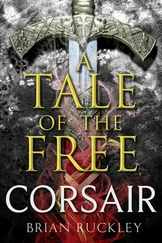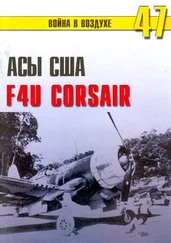Turgut Reis had told him all about the siege and fall of Kandia. It was a famous victory for the Turks. As a galley commander Turgut had witnessed the final capitulation of the city to the forces of the Sultan. It had taken the Turks fourteen years of siege to bring Kandia to its knees, and they had allowed the defenders, Venetians and their allies, to leave after handing over the keys of the city.
‘But the Christians were given free passage out of the city, were they not?’ Hector commented. In response, Karp opened his mouth, pointed to the mangled root of his missing tongue, and made an angry gurgling noise as he shook his head.
‘The Turks tore out your tongue?’ Now Karp was really agitated. He shook his head furiously from side to side. ‘If it was not the Turks, then who did that you?’ asked Hector gently. He hoped to calm the Bulgar. To his astonishment, Karp got to his feet, drew a cross in the dust, and deliberately stamped down on it.
The sound of distant musket shots prevented further questions. There was a flurry of consternation in the village. The women and children rushed inside their houses to hide. The menfolk grabbed up their guns and ran to take up position to cover the approaches to the village. But when the volley of musket shots was repeated, it must have been some sort of announcement because the men relaxed and began to gather in the square, looking expectantly towards the path that led up from the coast. After a little while Hector was relieved to see Dan appear. He was accompanied by the headman and a distinguished-looking elder whom Hector guessed must be the clan chief. But what caught Hector’s attention was the armed escort following on their heels – a dozen fierce-looking Negroes carrying spears and muskets. With them was a white man dressed in a long gown of red satin decorated with lines of pink silk ribbons tied in bows. His rapier hung from a wide baldrick of red brocade, and he was wearing a wide-brimmed hat embellished with a white ostrich plume.
This flamboyant apparition strode towards Hector and his companions and announced formally, ‘In the name of the Emperor, I summon you to attend on His Majesty, Moulay Ismail.’ To Hector’s stupefaction this command was delivered in Spanish.

‘HIS NAME IS Luis Diaz and he’s an officer in the army of the Sultan of Morocco,’ explained Dan some time later when the two friends had a chance to talk together privately. ‘The amazigh are tributaries of the Sultan, and Diaz and the soldiers were on a tax-collecting mission among them when he heard about the wreck of the galley. He wanted to interview the survivors about the bombs dropped on the town. He showed up while the amazigh council of elders were still discussing what to do with the other survivors from the St Gerassimus whom they had picked up.’
‘News travels fast,’ observed Hector.
‘The mortar bombardment was a sensation. Everyone’s talking about a wonder weapon.’
‘And did Diaz learn anything?’
‘Piecourt is in charge of the survivors, and is claiming to know nothing about the mortar. He said that the St Gerassimus ’s commander and all the ship’s senior officers had taken the two small boats in order to go along the coast and try to reach a friendly port to fetch help, and the bomb technician had gone with him. There was not enough room in the boats to carry all the survivors so the premier comite had been left in charge of the land party.’
‘I wonder where the boats were heading.’
‘Piecourt didn’t say. He and the rowing master were there with a dozen sailors and several petty officers, some of whom I didn’t recognise. They weren’t at all pleased to see Diaz. They had already asked me if I could persuade the amazigh to send word to Algiers, to the Jewish ransom brokers there, about their plight. Piecourt even offered me a reward if I could arrange this.’
‘Well, all that’s changed now. I have the impression that the amazigh will do whatever the Sultan or Emperor, however he styles himself, wants.’
‘No doubt about it. They made no objection when Diaz told them that he was taking charge of survivors from the galley. He said they were his prisoners from now on, and he would be sending them to the imperial capital at Meknes to be questioned.’
‘And does that include us?’
‘I expect we will be better treated. The amazigh informed Diaz that we had been slaves aboard the galley. Apparently convicted criminals and runaway slaves from other countries are given their freedom once they reach the Emperor’s territory, provided they can make themselves useful.’ Dan hesitated. ‘Hector, there’s something else you should know, though you may not like what you hear.’
‘What’s that?’ asked Hector.
‘The Emperor accepts tax from the amazigh not just in cash but in kind. If the amazigh cannot pay in cash or goods, they sometimes offer their young women for the Sultan’s harem. They pick out the girls with the palest complexions. The Sultan has a special liking for women with fair skins. He also buys them from the corsairs. In Meknes you may be able to trace what has happened to your sister.’
SIXTEEN

‘I PICKED UP the hat and gown from the rubble of one of the forts outside Tangier, though the feather was sadly mangled,’ said Luis Diaz, preening himself in his colourful costume. ‘One of the English officers must have dropped them when the garrison ran back inside the main defences after blowing up the fort. I was with the Emperor’s siege army at the time. Moulay is determined to capture Tangier from the King of England and add it to his dominions.’
‘This Emperor Moulay, what’s he like?’ asked Hector. In the two weeks he had been in the Spaniard’s company, Luis had proved to be an amiable escort, friendly and always ready to talk as they travelled into the interior on their way to Meknes, the imperial capital. Until now Hector had tactfully avoided asking how the Spaniard came to be serving a foreign emperor in Barbary.
‘Moulay Ismail is shrewd and utterly ruthless,’ answered Diaz frankly. ‘He’s the most unpredictable and dangerous man you would ever wish to meet, a despot who treats everyone as his personal slave. Oh yes, and he loves animals.’ He gave Hector a mischievous glance. ‘It’s just that some of his animals expect to be fed. Last time I was in the palace, Moulay was watching the senior comptroller of his treasury trying to avoid several hungry lions. Moulay suspected the comptroller of false accounting so he had the man lowered into the lion pit in the palace menagerie. The Emperor was sitting up on the edge of the lion pit, looking down as the animals stalked their prey, and he was enjoying every minute of the show. The wretched financier ran around for a good ten minutes, whimpering and pleading for his life, before the lions finally pounced.’
‘Was the man genuinely guilty?’
Diaz shrugged. ‘Who knows. The Emperor didn’t care, and he had other things to think about. The lions were still excited. One of them leaped up and tried to pull the Emperor off the wall. If Moulay hadn’t been wearing a mail shirt as he always does, he would have been dragged down into the pit as well. But the lion’s claws didn’t get a grip.’
‘Why on earth do you serve a man like that?’
The Spaniard grimaced. ‘I’ve not much choice. An unfortunate matter of a death at Ceuta where I was serving as a soldier. Someone was killed in a brawl over a woman. I thought it best to leave the city and offer my services elsewhere. Besides, I’m in good company. Men from almost every nation serve Moulay – two of his doctors are French; his field artillery is operated by Hollanders and Italians; there’s a clever gardener from England who does the royal parks, and so many Spanish are enlisted in his cavalry or as musketeers that we have formed a mess of our own. You’ll meet some of them when we reach Meknes which should be tomorrow, or perhaps the next day, if this cursed mud and rain doesn’t slow us down too much.’
Читать дальше










